
The Feminist Recovery Strategy
A new study shows how feminist business practices can help companies recover from the pandemic – and thrive in the future
The post Shut Out and Shut Up: Canada’s Feminist Recovery Plan Excludes Voices of Women Entrepreneurs appeared first on LiisBeth.
]]>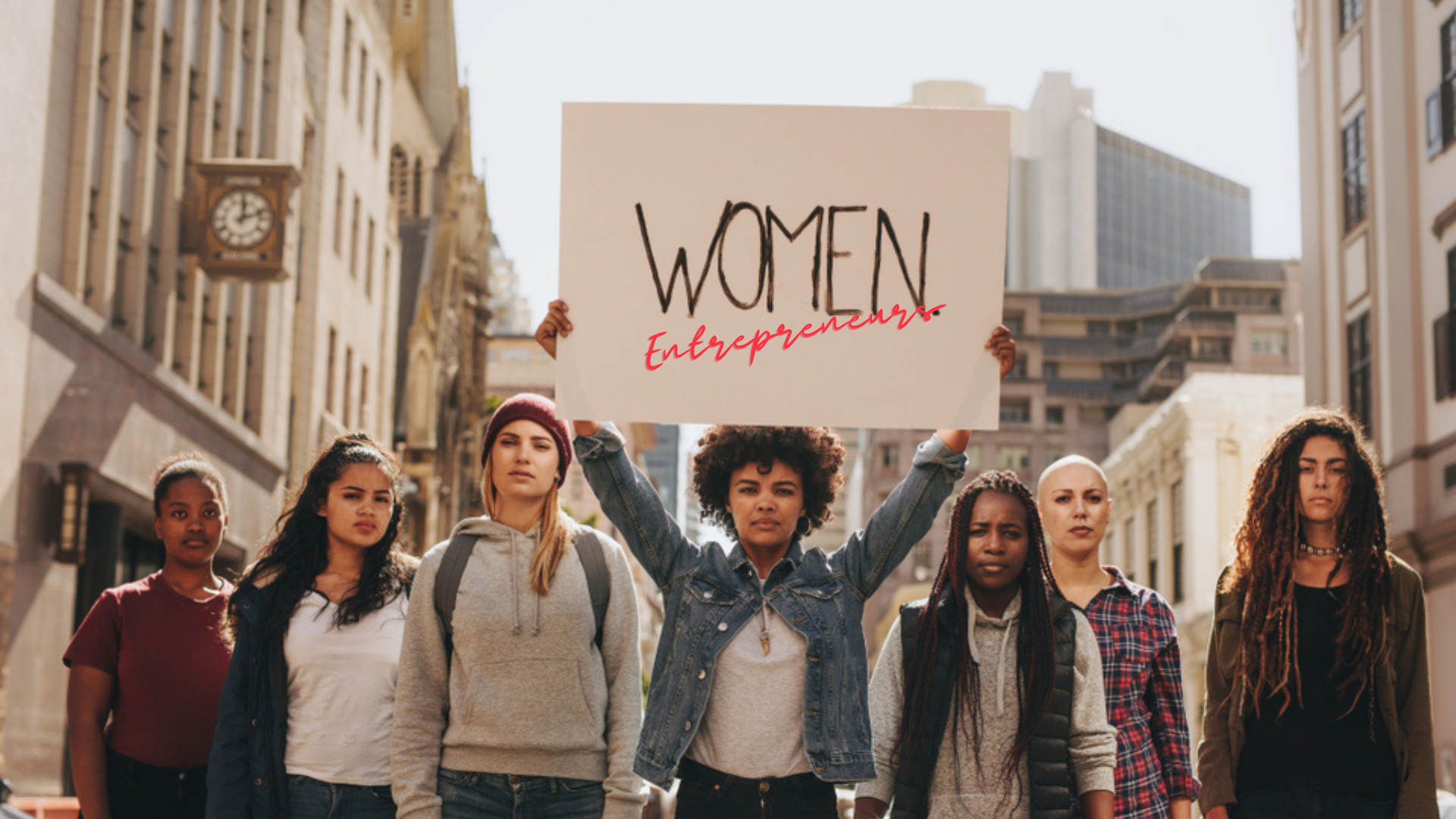
The Canadian government used International Women’s Day 2021 to announce a new “Task Force on Women in the Economy” to advise the government on creating a “robust and inclusive” and “necessarily feminist” pandemic recovery plan.
The roster of diverse women-identified experts named to the task force is impressive but hardly inclusive. It leaves out participation of a group not only hard hit by the pandemic but key to building back a better, more gender-just economy: women entrepreneurs.
Women’s entrepreneurship is a means of creating social change, especially redressing systematic gender barriers, argues Dr. Barbara Orser, co-author of bestseller Feminine Capital: Unlocking the Power of Women Entrepreneurs (Stanford University Press, 2015) and professor at Telfer School of Management, University of Ottawa. It’s also the means by which 1.5 million women earn their living and create freelance income opportunities or waged employment for an estimated 3 million others. Approximately 80 per cent of those entrepreneurs operate micro enterprises of one to four people or work as unincorporated solopreneurs, gig workers and freelancers, the majority not eligible for government pandemic support programs.
So why were women entrepreneurs shut out of the task force? And what will the government miss in not hearing their critical voices?
The composition of the task force was shaped by a letter penned by the Feminist Alliance for International Action (FAFIA) representing more than 60 women’s and equity seeking groups and sent to Prime Minister Justin Trudeau and Minister of Finance and Deputy Prime Minister Chrystia Freeland. FAFIA implored the government to centre women’s rights and gender equality organizations in its economic recovery plan. It recommended a task force that did not focus, as usual, on “business, boards, entrepreneurship, and STEM” as a pathway to women’s economic empowerment. Rather, it should address “the immediate needs of women workers marginalized by the pandemic” and acknowledge “the centrality of care to the well-being of society and the economy.”
The government heeded their call and created a task force that includes expertise in healthcare, not-for-profit, childcare, labour, academia, advocacy and also business.
But “business” is not the same as “entrepreneurship.” Indeed, the two are often poles apart.
Too often government privileges tip-of-the-iceberg “big business” in its consultations — private sector self-made millionaires, C-suite representatives of multi-nationals and finance sectors, in this case, corporate women, often white. It ignores the unique voice of ordinary women entrepreneurs that make up the base of that iceberg — solo and micro entrepreneurs, often invisible and, in this pandemic, drowning in debt.
We cannot lump “women entrepreneurs” in with “business.” Doing so will lead to short-sighted policy and missed opportunities.
Meet Women Entrepreneurs
Women entrepreneurs are diverse, intersectional and multifaceted in their pursuits. They are nomads rather than settlers, moving like water between systemic barriers and institutional blocks. They erode classic distinctions between civil and private sector, with how they do business, the nature of services and products they offer and the people and communities they support.
In fact, most women entrepreneurs have far more in common with civil society workers and wage-earning sisters than with traditional private-sector business leaders so often preoccupied with tax cuts, reducing regulation or putting women on boards as way of advancing diversity.
Prior to the pandemic, one-quarter of women pursued entrepreneurship out of “economic necessity.” They take on entrepreneurship because standard employment is not an option. They may be criminalized women, women with disabilities, women with mental-health challenges, trans or nonbinary women, non-status immigrant women, women over 55 made invisible, single women raising kids. They carry an oversized knapsack full of intersectional barriers and responsibilities. More than 80 per cent of single parents raising children are women, and entrepreneurship may be the only option to generate income while providing childcare in the home.
The precarity of women entrepreneurs demands consideration in any feminist recovery plan.
Despite media glamorization of entrepreneurship, most women entrepreneurs earn an average income that is closer to the wages of healthcare and social-assistance workers, about $68,000 after expenses or $34 per hour compared to $29.17. Yet, they shoulder additional risks, business debt and unpredictable incomes. Many women entrepreneurs barely achieve thrive rate incomes, often unable pay to be eligible for employment insurance, making them extremely vulnerable to personal economic collapse.
Yet, the majority of women entrepreneurs are critical to the cohesion and functioning of our communities. They create products and services in retail, hospitality, food, government, health, education, and social services. In other words, they do “women’s work” and are deeply essential to the “care economy,” which was disproportionately affected by the pandemic. FAFIA implored the government to recognize the care economy as a priority sector. The output and resilience of this sector depends, in large part, on the personal investment, work and health of women entrepreneurs.
A sampling of statistics show how hard the pandemic hit women entrepreneurs:
Why Does Representation Matter?
Without the input of women entrepreneurs, The Feminist Economic Recovery Task Force will most certainly overlook opportunities for stimulus and key issues to redress.
For example, we know from the 2008 economic crash, that personal bankruptcy impacted women entrepreneurs disproportionately to men. In 2020, personal insolvencies in Canada increased by 8.9 per cent.
Most women entrepreneurs face resource barriers and, out of necessity, finance their startups with credit cards and personal savings, leaving them vulnerable to crushing debt costs and personal bankruptcy. This pandemic has the potential to wipe out thousands of women entrepreneurs and keep them sidelined for up to seven years. Incorporation does not protect entrepreneurs from having to repay all debt.
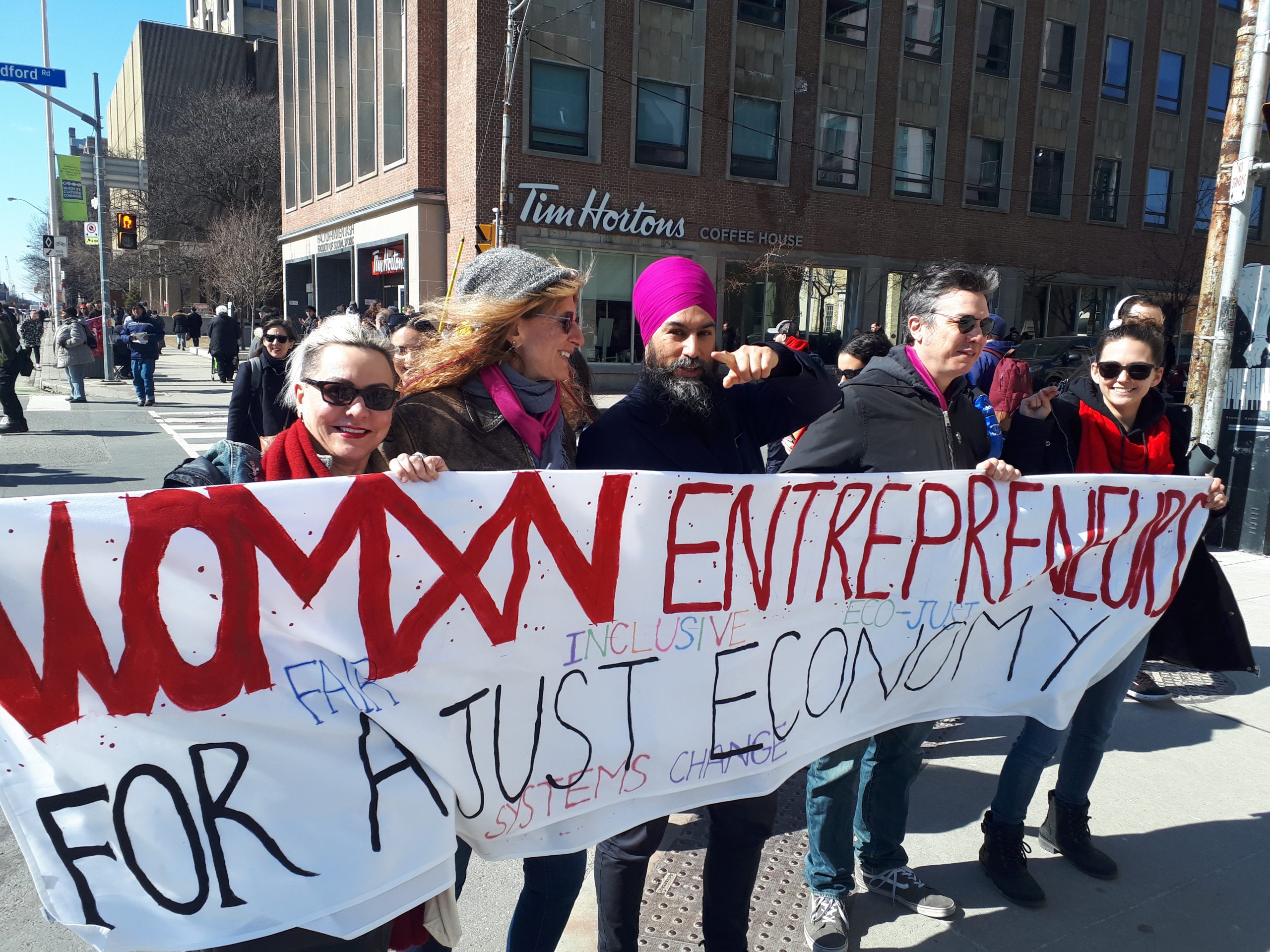
“I want to see the immediate revision of the scope of the task force and the addition of individuals to represent women entrepreneurs”
Nancy Wilson, Founder and CEO, Canadian Women's Chamber of Commerce Tweet
It’s important and refreshing to have feminist civil and labour organizations lead and inform a feminist pandemic economic policy. Certainly, it will address key concerns: the catastrophic drop in womxn’s participation in the labour force, the lowest in 30 years; the need for universal high-quality childcare.
But we also need womxn entrepreneurs at the table, someone who represents ordinary, front-line solopreneurs and micro-enterprise founders who are precious and precarious workers too.
I know one thing from my 30+ years as a serial entrepreneur, corporate employee, and gig worker: we need entrepreneurship to be part of a feminist recovery plan. Because at some point in our lives, nearly all womxn will undertake entrepreneurship as a result of finding ourselves unemployed, unemployable or traumatized by workplaces shaped by abusive systems — patriarchal, colonial, racist, extractive macho capitalism that privileges power and profits over people and the environment.
Womxn need economic independence to be free and flourish. Employed and self-employed, we need to join hands and seize this opportunity to create a gender-just and care-centred economy. To be holistic, intersectional and feminist, the recovery plan must include the voices of womxn entrepreneurs.
Publisher’s Note: In this article, we use the term “womxn” to indicate that when we say women, we are including all women-identified people. However, when a quote or text uses the term “women” we do not alter it.
Call to Action: If you would like to see a representative from the women’s entrepreneurship space added to this task force, write to Honourable Chrystia Freeland, Canada’s Deputy Prime Minister and Minister of Finance here: [email protected]. Or consider signing this petition.

A new study shows how feminist business practices can help companies recover from the pandemic – and thrive in the future
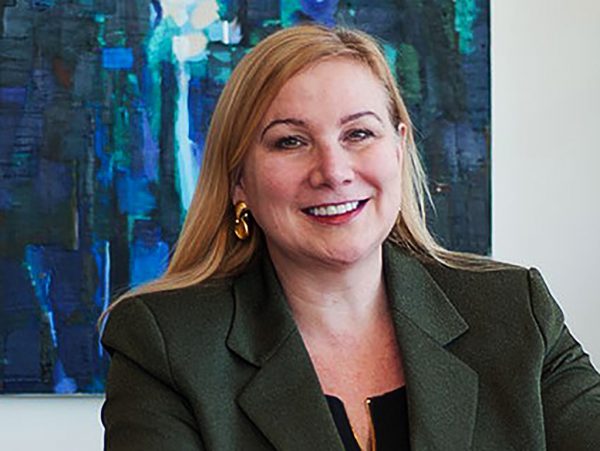
How Can Women Entrepreneurs Survive the Covid She-cession? A major report offers ideas

What are the real costs of entrepreneurship when the business you founded, and loved, hits the rocks.
The post Shut Out and Shut Up: Canada’s Feminist Recovery Plan Excludes Voices of Women Entrepreneurs appeared first on LiisBeth.
]]>The post SheEO Funds First all-Black cohort in U.S. appeared first on LiisBeth.
]]>
Five U.S. ventures led by five Black women entrepreneurs will get a major injection of cash from SheEO’s global community of radically generous investors.
SheEO announced today that, for the first time in its history, all five enterprises that activators chose to fund for its U.S. cohort of investment are owned and led by Black women and non-binary people.
Vicki Saunders (she/her), founder of SheEO, says the organization made a targeted investment because of the lack of funding and support available to women entrepreneurs.
“If you’re a woman of colour, it’s virtually impossible [to get funded]—it’s less than point 0.01 per cent,” she says. “But all of a sudden, you have a huge community of people who are like, ‘We love you, how can we help?’”
Saunders launched the Toronto-based non-profit in 2015 with a goal of building a global community of “radically generous” activators to build a fund to invest in women entrepreneurs building equitable and sustainable ventures.
In the U.S., 500 activators every year, gift $1,100 to a perpetual fund that provides zero-interest loans to the selected Ventures, voted by the Activators. As the loans are paid back over 5 years, they are loaned out again and again to more women-led Ventures, keeping the Activators gift in perpetual flow.
The “one activator-one vote” democratic, participative and non-hierarchical selection process is what sets SheEO apart from other non-equity fund initiatives.
Since the revival of the Black Lives Matter movement following the George Floyd protests last summer, Saunders says the activator community has been engaged in conversations about how they can better support Black entrepreneurs, including creating the Racial Justice Working Group within the SheEO community with S.O.U.L. Sisters Leadership Collective, a U.S. SheEO Venture.
This year’s announcement of the first all-Black U.S. cohort, she says, is an example of how successful those conversations have been.
“I think the original reckoning is really a gift to all of us to step back, pay attention to our role in keeping the world the way it is—and to decide to shift that.”
One of the activators is Jamie Gloshay (she/her), a Navajo White Mountain Apache and Kiowa entrepreneur and co-founder of Native Women Lead. This year, she voted for ventures she felt had under appreciated potential while keeping in mind the significant challenges so many women have faced due to COVID-19. She says she hopes the selected entrepreneurs feel supported in their journey.
For Gloshay, value comes not only in investment but in building community – and inviting entrepreneurs into it. “I often find that entrepreneurs feel like it’s a lonely journey,” she says. “Being able to access tools and resources and a community—especially with women who have already committed to being radically generous—I think that is so supportive and so needed in the world that we’re currently living in. With COVID-19, a lot of women are having to carry their families and their communities through, so it’s necessary to have that extra support system.”
Terri-Nichelle Bradley (she/her), CEO and founder of Brown Toy Box, is one of the five ventures selected for funding this year. She’s thrilled to join a community of women supporting other women leading enterprises focused on working on the World’s To-Do List, co-creating an equitable and sustainable equitable world, together.

“I love the fact that it’s women investing in women with capital, but also with their time and their expertise,” says Bradley. “I thought, just to have that affiliation with really impact-minded women—how cool would that be?”
Bradley leads a multimedia company that produces and curates STEAM toys, media, and experience for Black children. Through STEAM (science, tech, engineering, arts, math) education, cultural representation and educational play, Brown Toy Box aims to normalize Black excellence and create prosperous career pathways for Black children.
Bradley is excited to join a community of women who share similar goals. “I definitely believe that you should cultivate people who share the same values and same priorities in as many ways as possible. The fact that these are women that are really focused on changing the world for the better […] that’s exactly where I want and need to be.”
The five ventures by Black women (see slide show below) announced as part of SheEO’s U.S. cohort are: Brown Toy Box by Terri-Nichelle Bradley, Courtroom 5 by Sonja Ebron, Makher’s Studio by Wanona Satcher, 100K incubator by Arielle Loren Palmer, and CIO Energy by SaLisa Berrien.

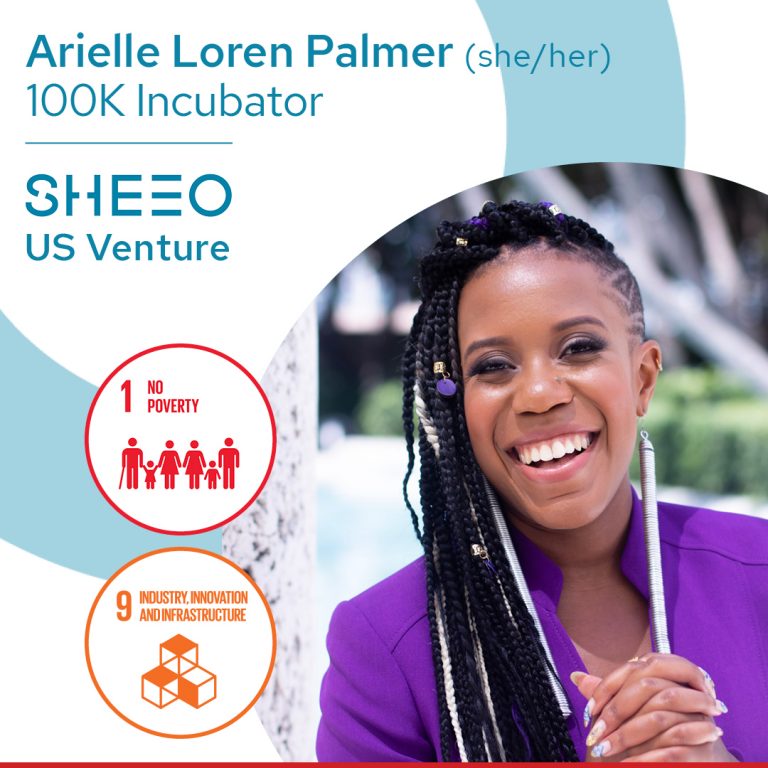



SheEO’s U.S. venture announcement is open to the public. Activators, ventures and guests can attend the event and meet the five women entrepreneurs by registering here.
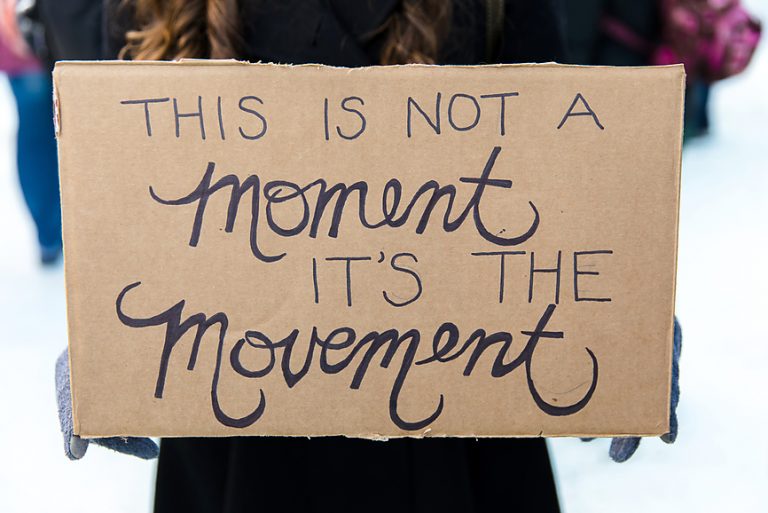
Entrepreneurship support organizations are keen to profile their diversity and inclusion work–but are are policies and procedures keeping pace?
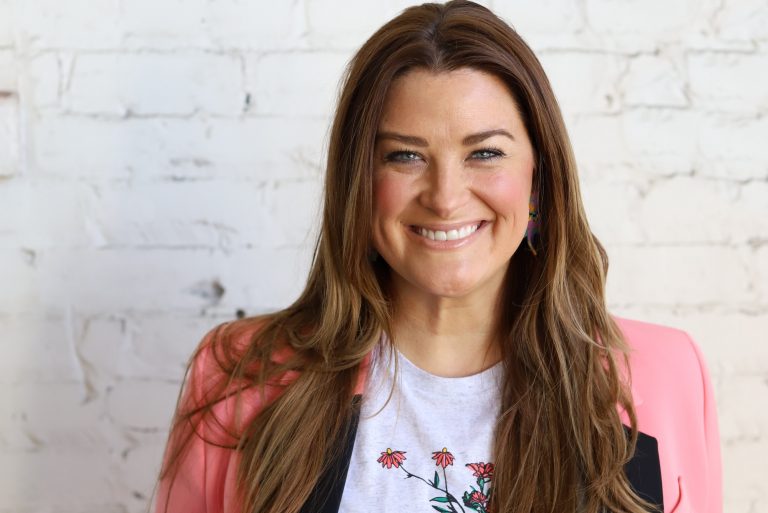
New study shows how women-led startups succeed even when VC funding fails.
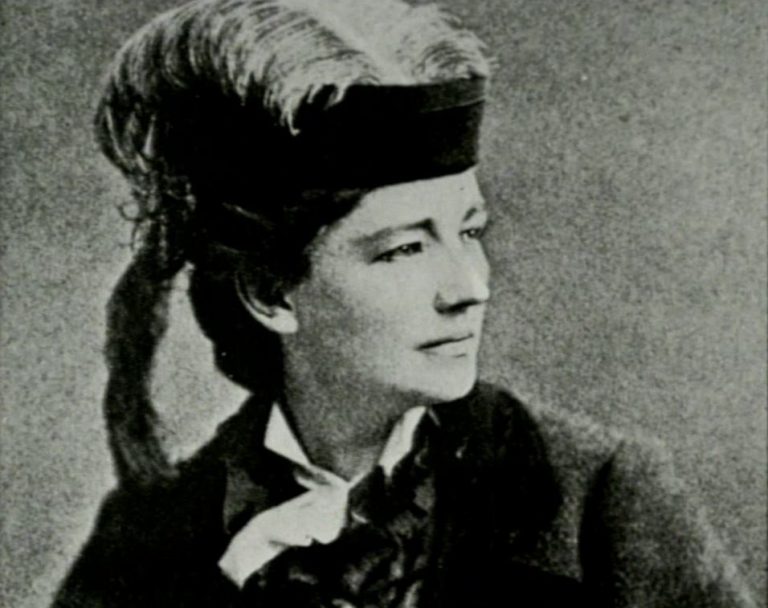
A 19th century successful, edge-walking feminist entrepreneur, publisher and leading suffragette who racked up a number of firsts—in politics and business—suffered harsh consequences. What can we learn from Victoria Woodhull experience that still applies today?
The post SheEO Funds First all-Black cohort in U.S. appeared first on LiisBeth.
]]>The post 8 Financing Resources for Women* Entrepreneurs appeared first on LiisBeth.
]]>Article written and submitted by Ellie Wainaina, Kenyan Freelance Writer
It’s 2016 but women still struggle to obtain financing for their businesses. Research shows that companies headed by men will receive over 95 per cent of all investments made in business. Given it’s 2016, this is highly disappointing.
Perhaps one of the major reasons why funding for women-owned businesses is so difficult to obtain is the number of women in senior positions. Women only make up 15.4 per cent of CEO positions and hold 33 per cent of senior management positions. Fewer women in senior positions means fewer women with the means to become future angel investors or partners in investment firms.
Based on the law of averages, men are more likely to find it easier to get the financing they need from investment companies than their female counterparts.
As a female entrepreneur, starting and operating your business may end up being an uphill battle. However, you can get the financing you need by taking advantage of financial resources more readily available for women. Here are some of the resources:
1. The Eileen Fisher Women-Owned Business Grant Program
The Eileen Fisher Women-Owned Business Grant Program awards $120,000 for up to 12 recipients each year. Therefore, the minimum you can get from this grant program is $12,000, which will greatly help your cash flow. To qualify for this grant, your business should:
Applications are open every year in April and May.
Kabbage is an A+ rated online lender that cares more about the health of your business than your gender or even credit history. If you have been in business for at least one year and have $50,000 or more in revenue, Kabbage is a good financial resource to explore an open line of credit.
In order to enjoy the benefits of financing from Kabbage, you will need to open a free account, then link to the online services that you use to run your business, such as Amazon or PayPal.
Once your application has been viewed and approved, you will get access to the line of credit that you need. The loan amounts range from $2,000 to $100,000. You will then be able to access the money on the go—whenever you need it.
You will have the choice of getting your loans on either a six-month or 12-month plan. In order to qualify for the 12-month plan, you need to borrow at least $5,000. The interest fees vary from 1.5 to 12 per cent, which is quite reasonable.
3. Plum Alley Crowd-Sourced Funding
What better way to find financing for your business than from other female entrepreneurs who know what it’s like to struggle?
Enter Plum Alley. This is a crowd-funding site with a difference. It specializes in helping women obtain financing for their businesses from other women or men who want to advance the cause of women in business.
In order to obtain the funds, you will need to open an account, create a project on the platform by providing basic details such as your location, funding goal, and category in which your business belongs. There will be instructions along the way to help you create an effective campaign to get you the financing you need.
In exchange for the money you’re given, you will offer rewards to your investors. This can be anything from a thank-you note to a pre-purchased product that you create with the financing you get.
You definitely should consider crowdfunding via Plum Alley if you are looking to avoid punitive interest rates associated with loans, but are willing to give away something for free.
4. The Union Bank Business Diversity Lending Program
While there are traditional lending institutions that will make it difficult for you to access funding for your company, Union Bank is not one of them. Through Union Bank’s Business Diversity Lending Program, you can access financing of up to $50,000. You can apply online for this loan if you run a woman-owned business and actively manage at least 51 per cent of it.
In order to ensure that your business has access to the diversity loans, your business should have annual sales of less than $20 million. The company you own and manage should also be two years or older and have borrowing needs of less than $2.5 million.
Once you have determined that you meet all the set requirements, you can go about applying online for your business loan.
While the odds of you making it to Dragons’ Den are very low, you can still access investors via 37 Angels, which specializes in seed stage investing. Because it’s made up of over 50+ women investors, you have a higher chance of getting the financing your woman-led business needs to operate and expand. You can then pay it back with interest or offer equity to the investors.
In order to have a shot at getting funding, you need to use the Gust platform to pitch via video. The 37 Angels investors will then call you to determine if your business is a mutual fit.
If that’s the case, the company, as a network, will invest anywhere from $50,000 to $150,000 into your business. Angel investors in this network can also help you raise between $500,000 to $1 million.
The decision on whether 37 Angels will invest in your business or not will come through in four weeks, which is a relatively short time. To increase your chances of getting positive feedback, be sure to apply when your business earns $50,000 to $500,000 in revenue. It will be much better for you if your company is valued at $2 million to $6 million, and if you’re able to make the pitch in person in New York City.
6. Kickstarter’s Crowd-Sourced Funding
If you are looking to dip your entrepreneurial toes into the creative arts or technology industry, then Kickstarter is the online funding resource you should explore. Kickstarter is one of the largest crowd-funding sites online. In 2013, Kristen Bell, the star of the Veronica Mars TV series, and director Rob Thomas, took to the platform after getting rejected by Warner Bros. Through Kickstarter, they sought alternative funding for the Veronica Mars Movie Project and requested people to help fund the film.
Guess what? People did!
The Kickstarter project ended up raising over $5.7 million from more than 91,500 backers. The fact that the movie ended up being made is a testament to the power of crowd-sourced financing for entrepreneurial projects. So, what’s stopping you from doing the same? Why shouldn’t you enlist the help of internet strangers to fund your business dreams?
Make sure you take the time to familiarize yourself with the Kickstarter platform. Sign up, create a project, and determine which category your business lies. Then go about writing details about your business product, state your funding goals and deadline, and wait for donors to fund your entrepreneurial ventures. Most successful projects tend to raise under $10,000, so no dream is too small.
You can offer rewards in return for funding that is given to you. It could be something as simple as a copy of the product item you end up creating, or something intangible in the form of unique experiences.
You will only be charged a fundraising fee for a fully funded project, which is always a good thing if you fall short on your financing goal.
7. Walmart’s Global Women’s Economic Empowerment Initiative
Your business doesn’t have to be in the U.S. for you to enjoy funding resources from that country. There are financing programs like the Walmart’s Global Women’s Economic Empowerment Initiative (WGWEEI) that will stand you in good stead.
The WGWEEI aims to source at least $20 billion from women-owned enterprises in the U.S. and abroad. It also aims to launch and operate a dedicated marketplace for women-owned products.
Perhaps the most noteworthy aspect of the Walmart empowerment initiative for women is the grants that will be made available to you. Walmart aims to provide $100 million in grants toward women-owned businesses over a period of five years starting from 2011. Though this is the tail end of the initiative, you still have a chance to get on the funding boat.
If you have a business that will empower women in your country, and that country is covered under the WGWEEI, then you qualify for Walmart grants. Grants can range from $250 to $250,000, so there’s money to be had for your business if you require financing. However, you have to submit a final impact report when applying for grants. Be sure to read the updated guidelines before you take any step in that regard.
8. Requested Donations from Reddit or Similar Sites
Just as there are many ways to skin a cat, there are also as many ways to obtain financing for your business.
Take Reddit, for instance, one of the most popular online social forums out there. In March 2016 alone, the platform had over 243.6 million unique visitors from 212 countries. That’s impressive! Prior to 2009, whenever Redditors wanted to share their images, they would use all manner of platforms to do so, which resulted in compatibility complications. That was until one Alan Schaaf decided to do something about it. He created Imgur, an image hosting and sharing site that was compatible with the Reddit platform.
Originally, Imgur was meant to be a gift for the Reddit online community. However, Schaaf got serious with what he had deemed a side project and decided to develop it further for all internet users. Money was an issue. But because Imgur offered a service that Redditors really appreciated, they donated money to keep the site going until Schaaf was able to get financing from Andreessen Horowitz, a $4 billion venture capital firm. And that is how the modern version of Imgur was born.
or
Are you wondering why this story is relevant? It’s simple really.
If you have an idea of how to meet the needs of a large group of people, financing should not be a problem. Just the thought that you will be able to solve a major problem is enough to inspire people to finance the development of your product.
Online communities like Reddit are a good place to test your entrepreneurship skills. The very people who donate funds to your growing business will also provide constant feedback for your product. This should help you refine that product until you have something good enough to present to major venture capitalists for more financing. Alternatively, you can use the donations you get from Reddit or other similar platforms to operate your business until you can monetize it effectively.
If you have an online product that will appeal to large audiences like Reddit, don’t be afraid to ask for donations. The worst that can happen is you will get no for an answer. That’s not a life and death matter, is it?
Just because the odds are against you as a female entrepreneur does not mean you should give up. Each day is a new day. As time goes by, the financing options for women in business will continue to increase. You should, therefore, take advantage of every funding resource that comes your way to start, run, and expand your business. The aforementioned resources are just the beginning.

International Women’s Day is about celebrating the social, economic, cultural, and political achievements of women. Attend a rally. March. Listen.

This week, LiisBeth invited Urbanology’s Sadé Powell to curate a playlist for readers looking to reset their entrepreneurial journey—and to discover new music in the process.
The post 8 Financing Resources for Women* Entrepreneurs appeared first on LiisBeth.
]]>